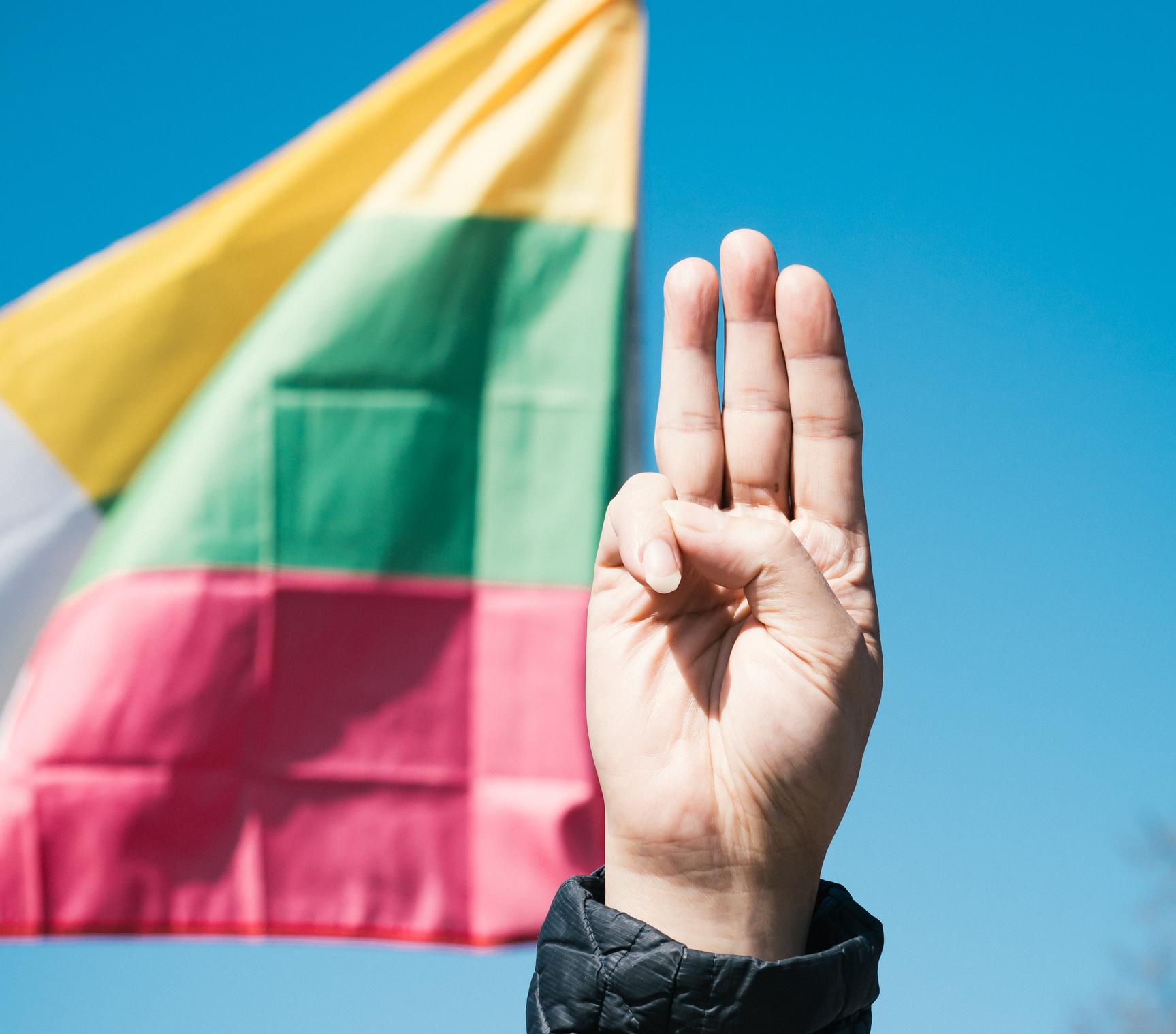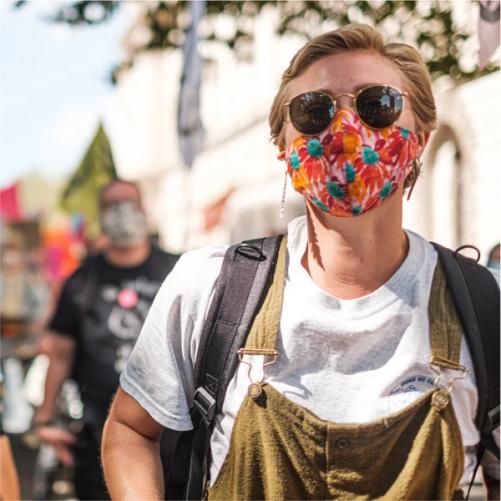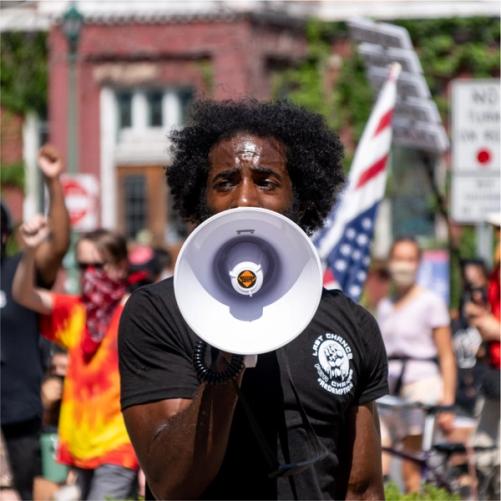News
Myanmar’s conscription law is threatening student activism

Published in University World News 10th. Iune 2024
Young people are at the forefront of the pro-democracy movement in Myanmar. Yet, their futures look bleak amidst constant attacks from the military junta, known as Tatmadaw. With the recent enforcement of the 2010 conscription law, young people are not only being coerced to give up their educational and professional pursuits, but also their fight for a free Myanmar. The need for international solidarity from higher education institutions has never been bigger.
The conscription law is primarily affecting students and educated youth who, as student activists and drivers of the civil disobedience movement against military rule, are being physically removed from the civic space to the junta’s side of the battleground. In response, many young people have fled the country or gone into hiding to avoid conscription. Others have been forcefully taken by the military or killed while trying to escape capture.
What is the conscription law and why has it been activated now?
The Myanmar conscription law The Myanmar conscription law is an example of ‘lawfare’ - the globally growing trend of using legislation to shrink civic space. The law was first introduced in 2010 by the previous military regime but was never enforced - until now.
In February this year, the Tatmadaw announced that enforcement of the law would commence in mid-April, with an initial recruitment of 5000 new soldiers . The law applies to men aged 18 to 35 and women aged 18 to 27, with special conditions applied to a group the law vaguely refers to as “professionals”. This group includes educated youth with engineering and medical skills needed by the military. According to the law, these educated youth must serve a minimum of three years of military service - one year more than the standard minimum. The law effectively mandates young men and women to serve in the military for up to five years during a so-called “emergency”.
Enforcement of the law now coincides with growing defections from the military and increasing gains by resistance forces . The junta needs to replenish its manpower and technical know-how to fight back, and one way of achieving this is by drafting young, educated people. Strict measures have been put in place to enforce this. Ignoring the summons can result in punishment of three to five years in prison and a fine. The regime’s recent ban on young people to move abroad for employment is also being seen as a new mechanism of enforcement.
Youth and student activism at risk
Students in Myanmar have been especially vocal and active against the military regime. As part of the subsequent civil disobedience movement, thousands of students walked away from junta-run universities and schools. Many switched to alternative educational solutions, such as community-run higher education institutions in ethnic minority areas, and digital education options organised by civil society organisations. These alternatives are, however, under-funded and under regular attack by the military.
With the age range for conscription being 18-35, the law is targeting the very same proportion of the population opposed to the current military rule. The law might therefore be an effective strategy to silence opposition and remove influential civic leaders, many of whom are students. This puts student activism at immense risk. Enforcement of the law is just the latest tactic of the junta in repressing dissent from students. This is highlighted in the 2023 Activism Under Attack report published by the Norwegian Students’ and Academics’ International Assistance Fund (SAIH). The report shows the important role that student activism plays in the country’s fight for democracy and documents how lawfare is one of several mechanisms of repression used by the military.
The enforcement of the law has also caused much fear and desperate actions as the junta is known for its malicious behaviour. People fear that the conscripted, who are unwilling fighters, will receive only weeks of training before they are sent to the front as human shields. The junta already has a history of forcing civilians to work as porters and minesweepers, which is incredibly dangerous. Many also fear that the law will be used to “legally” draft and target people on the run, or in opposition to the junta.
Higher education institutions in Myanmar that SAIH partners with have reported worrying developments in recent days of how the conscription law is affecting their students and young people. One partner reported the killing of a recent graduate by the Tatmadaw while trying to escape being captured into conscription. Another partner has reported that Tatmadaw soldiers wait outside their university campus to “grab” students.
Circumventing conscription
Young people are attempting to circumvent the law in various ways. Those that can afford it have left the country. However, visas are expensive and hard to get so some have crossed borders illegally. Those caught fleeing have been tortured and interrogated by the police. One of SAIH’s partner organisations in Myanmar reported that many students have fled urban areas and gone into hiding, leaving behind their education to avoid conscription. Another partner has reported that LGBTQIA+ people who have crossed the Myanmar-Thailand border illegally are being particularly targeted and subjected to sexual violence while being detained by Thai authorities.
Others are trying to get exemptions. Students, along with civil servants and carers, are granted temporary exemptions. However, people in these groups must serve after the time of exemption is over, even if they are over the age of conscription. This places student activists in a position where their student classification is increasingly important. Some young people have returned to state-run universities, after leaving as part of the civil disobedience movement. They are hoping that being registered again as a student will make them eligible for temporary exemption. However, this avoidance strategy is not bulletproof as reports from SAIH’s partners of the military forcibly conscripting students shows.
Another option for young people is to flee to the resistance-controlled areas for protection or to fight . They explain that if they must fight, they will fight against the military rather than their own people. And as a last resort, some young people are taking drastic measures to avoid conscription. One of SAIH’s partners reported that following the activation of the law they have seen an increase in suicides and suicidal attempts among the young people they work with.
Need for international solidarity
The recent enforcement of the conscription law in Myanmar is yet another chapter in a long book of the military’s repression against students. It is also another example of ‘lawfare’ silencing dissenters, quite literally by physically removing them from the civic space. A bigger spotlight needs to be placed on what is happening right now in Myanmar, with the military junta destroying the futures of young people piece by piece. Myanmar students and youth need the solidarity of the international higher education sector, to give attention to the situation and offer alternative educational options during this crisis.

